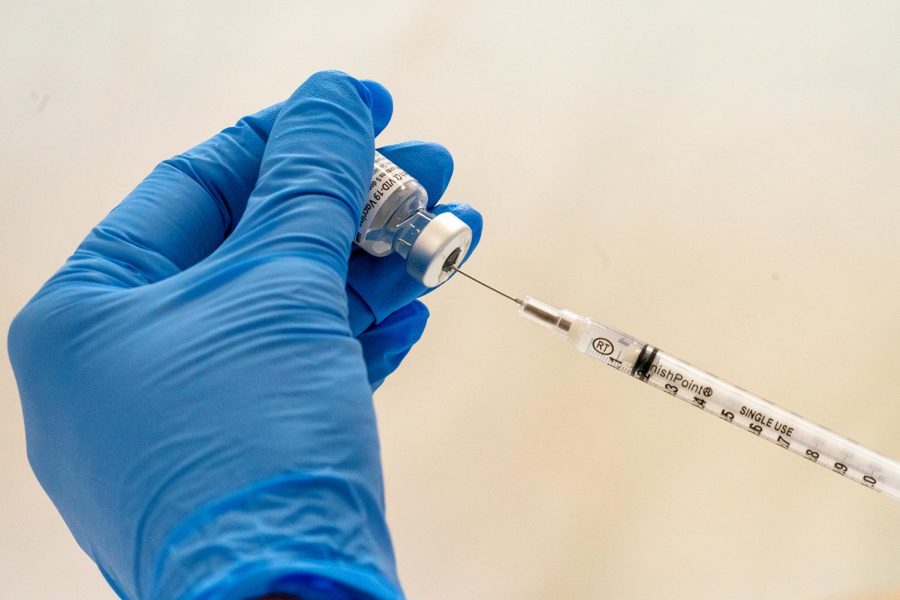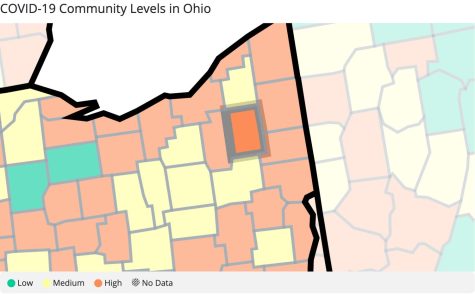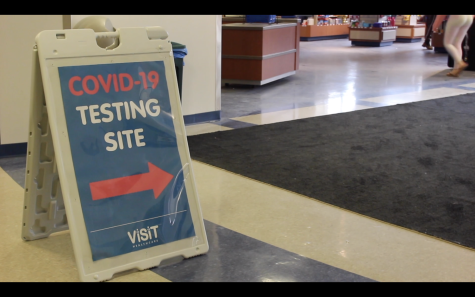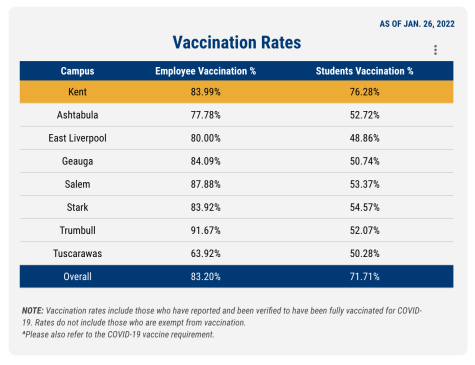Pharmacies start administering their first 1 million Covid-19 vaccine doses from federal government
Registered Pharmacist Paula Agoglia fills a dead volume syringe with the COVID-19 vaccine at a pop-up vaccination site in the William Reid Apartments, Saturday, Jan. 23, 2021 in the Brooklyn borough of New York. The syringe allows for a full 6 doses to be extracted from each vial. (AP Photo/Mary Altaffer, Pool)
February 12, 2021
(CNN) — More retail pharmacies around the country will start to administer Covid-19 vaccines by appointment Friday under a new federal program that is shipping doses directly to them.
One million doses have been allocated to 6,500 pharmacies — including some CVS, Walmart, Walgreens and Rite Aid locations — in the first phase of the Federal Retail Pharmacy Program.
Many pharmacies still will not have the have vaccine in this early phase. Walgreens will have it in certain stores in 15 states; Rite Aid has it in six states; Walmart and Sam’s Clubs have it in 22 states. But the coverage area is expected to expand as supplies increase.
The doses sent directly to pharmacies are separate from the millions per week that the federal government already has been distributing to states — a few of which already were providing doses to a small number of pharmacies.
A person’s eligibility still varies by state. All states began with priority populations — often health care workers and people in long-term care facilities — followed by seniors and/or essential workers, or people with certain health conditions.
Though states have generally complained supply is not meeting demand, the number of vaccinations per day has been rising.
The US has averaged nearly 1.6 million doses administered per day over the past week — higher than the daily average of about 1.3 million last week, according to a CNN analysis of data published Thursday by the US Centers for Disease Control and Prevention.
By April, access could start to expand to the general public, and most Americans could be inoculated by the middle or end of summer, the director of the National Institute of Allergy and Infectious Diseases Dr. Anthony Fauci told NBC’s “Today” show this week.
The upswing in vaccinations comes amid concerns about the spread of more-transmissible coronavirus variants. One key question is whether the vaccines will work on these mutated strains.
So far, at least 997 cases of more-transmissible Covid-19 variants, first detected in the UK, South Africa and Brazil, have been reported in the US, according to CDC data.
Dr. Barney Graham, Deputy Director of the Vaccine Research Center at National Institutes of Health, told President Joe Biden on Thursday that the antibodies that vaccines make against the virus can still attack the known variants.
“Antibodies have a lot of places to bind. It may eventually lose efficacy, but I think we are OK for now until additional mutations are accumulated,” Graham said.
Vaccinations picking up the pace
The pace of vaccinations should ramp up further in March and April, allowing a broader segment of the population to become eligible, Fauci said.
“I would imagine by the time we get to April, that will be what I would call for, you know, for better wording, open season,” Fauci told NBC on Thursday. “Namely, virtually everybody and anybody in any category could start to get vaccinated.”
Makers of the country’s currently authorized two-dose vaccines — Pfizer/BioNTech and Moderna — have begun trials for children, starting with older age groups. By September, vaccines could be authorized for young children, Fauci told ProPublica on Thursday.
Johnson & Johnson would add to the country’s supply if the Food and Drug Administration authorizes its one-dose vaccine. The company has said it could provide 20 million to 30 million doses by the end of April if the authorization comes, with more possible after that.
Biden said Thursday the US is on track to have vaccine supply for 300 million Americans “by the end of July.”
“We’ve now purchased enough vaccine supply to vaccinate all Americans, and now we’re working to get those vaccines into the arms of millions of people,” Biden said during a speech at the National Institutes of Health in Bethesda, Maryland.
Fauci: Reopening K-8 schools is ‘doable’ in Biden’s first 100 days
The CDC is expected to issue guidance Friday afternoon on how schools can reopen. Biden has pledged to reopen most US schools within his first 100 days in office, though some teachers’ unions have expressed concerns about reopening while many educators have yet to be vaccinated.
On Friday, Fauci said reopening essentially all K-8 schools in the Biden administration’s first 100 days is “doable.”
When asked what parents should know about whether it’s safe to open schools, Fauci told ABC’s George Stephanopoulos that he didn’t want to get ahead of the guidelines coming from the CDC.
“What you want to do is make sure it’s safe for the students, and safe for the teachers and other personnel associated with the educational system,” Fauci added. Ways to make it safe include masking and good ventilation, and by vaccinating teachers as quickly as possible.
States loosen their coronavirus restrictions
The rates of new Covid-19 cases and deaths, and the numbers of Covid-19 patients in hospitals, are dropping after surges around the holidays. As they do, some states are dropping social restrictions meant to curb the spread of the virus.
Nevada said it will aim to end state-mandated business capacity restrictions by May 1 in phases, though local governments can still issue their own restrictions.
Starting Monday, Nevada state rules will allow most businesses and houses of worship to have up to 100 people, or 35% of normal capacity. If coronavirus cases and hospitalizations continue to decrease, capacity would go up to 50% on March 15.
“If we all want to see this transition to local control, let’s work together to continue decreasing our community transmission,” Gov. Steve Sisolak said Thursday.
Indoor gathering limitations in Wyoming will be increased to 25% of capacity or 500 people Monday, and limits on sporting events, artistic performances, restaurants and gyms will be eased, Gov. Mark Gordon said.
Montana Gov. Greg Gianforte signed a bill on Wednesday shielding businesses and houses of worship from legal liability for Covid-19 transmission as long as they take measures to follow public health guidelines and announced he would not extend the statewide mask mandate.
“The mask mandate will expire on Friday,” the governor said, adding, “Since we’re not out of the woods yet, I will continue to wear a mask, and I will encourage all Montanans to do the same.”
Though numbers have improved, health experts have warned that precautions are still important to keep the spread of more transmissible variants limited.
The-CNN-Wire
™ & © 2021 Cable News Network, Inc., a WarnerMedia Company. All rights reserved.


















